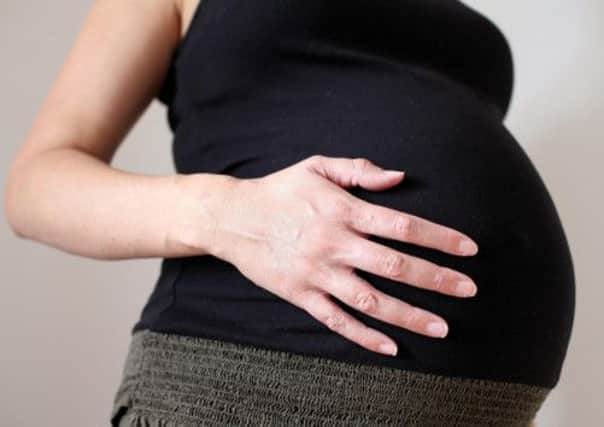Dani Garavelli: Consumer in training


If your labour has been relatively straightforward and your baby is well, the days in hospital can drag a bit and looking at all the free samples killed time between feeds and visits from the midwife. I was particularly taken with the dinky little Sudocrem pots which looked like they belonged in a doll’s house. Perhaps it was all the hormones swishing around, but I didn’t feel exploited. I knew the point was to get me to buy the brands, but I viewed it less as a marketing exercise than as an initiation rite.
The next two times I gave birth, I was not so excited by the goodies. Having spent several years changing nappies, the prospect of a pack of six wipes and a miniature bottle of fabric conditioner was less than thrilling. I also recall being mildly irritated by efforts to get me to have my babies’ photographs taken at a time when trying to choose what box to tick on the dinner menu was as much as my brain could cope with, but even then it didn’t seem like a big deal.
Advertisement
Hide AdAdvertisement
Hide AdLast week, however, the British Medical Journal published a feature which suggested that far from a harmless gimmick, Bounty – and other companies involved in ante and post-natal promotions – are vast, money-making enterprises which use the NHS to gain access to parents and exploit its authority to sell goods.
When I first heard these claims, made by Glasgow GP Margaret McCartney, I was sceptical, but her case is pretty convincing. Bounty, she says, gives out 2.6 million bags a year, some of which are distributed by NHS professionals and some by its representatives on post-labour wards. It pays the NHS £2.3 million in cash and equipment for access, but profits by selling on the details of parents to other companies. Sometimes those parents hand over those details in the mistaken belief they are sought by health professionals.
Bounty is not the only company benefiting from an association with the NHS. Many pregnant women in the UK receive a book called Emma’s Diary, which carries the Royal College of General Practitioners stamp and contains 25 pages of advice and 115 pages of advertising. There have also been claims that a publishing company responsible for a magazine being set up by the Royal College of Obstetricians and Gynaecologists offered one company a guaranteed minimum audience of 500,000 new mums and an advertorial piece presenting it as a “thought leader” at a cost of £15,000 for six months.
That companies such as Bounty are lent legitimacy by the NHS is shocking, particularly when you consider they are part of a much larger conspiracy to turn childhood into an exercise in conspicuous consumption. With the benefit of hindsight, I see the Bounty bags are indeed an initiation rite; an initiation into the world of commercialism that engulfs every aspect of parenting. If we are not being bombarded with advertisements for safety equipment which prey on our fears that some disaster will befall our children, then we’re being fed subliminal messages that only investment in top-of-range equipment – trendy three-wheeled buggies, vibrating swing-chairs or wipe warmers – can guarantee their happiness.
Then there are all those “rites of passage” which didn’t exist a generation ago: the plastercast of the hand or footprint, for example, or the photographic record of the first pair of shoes. Apparently well-established, but new to me, are 1st Birthday Smash Cake pictures, where babies are taken to a studio and encouraged to smear sponge and icing all over their faces in a display of unbridled excess.
Once children arrive at primary, a whole new vista of money-making opportunities opens up, with hapless parents expected to invest in child-designed calendars, tea towels and Christmas cards, which, in my house at least, tend to have all the aesthetic appeal of a gravy stain.
Fair enough, most of these enterprises are fund-raisers for the school. But what about the endless Tempest photographs? All over Scotland there must be houses with drawers full of the damn things. It’s nice for those who can afford it, I guess. But what about those families who are struggling to get by?
My latest gripe is being asked to pay £15 for a DVD of my son’s First Communion. Lovely though the service was, I can’t imagine anything I want to do less than sit through an hour of footage to see a few seconds of my him walking with his hands clasped prayerfully in front of him. But am I going to make him feel he’s the only one whose parents aren’t interested in moving images of his big day? Of course not. I’ll fork out the money and stash the DVD in the back of the cupboard alongside the unviewed one of a school concert.
Advertisement
Hide AdAdvertisement
Hide AdMaybe I’m particularly unsentimental, maybe I’m just tight with my cash, but I maintain my reluctance to invest in coasters, keyrings or fridge magnets with my sons’ faces on them stems less from stinginess than from an instinctive distaste for the treatment of children as cash cows for corporations. I’d like to think if I had understood the Bounty packs represented the first step on a journey towards the commercialisation of their young lives, then I would have greeted those little pots of Sudocrem with a degree of cynicism as opposed to squeals of delight. «
Twitter: @DaniGaravelli1